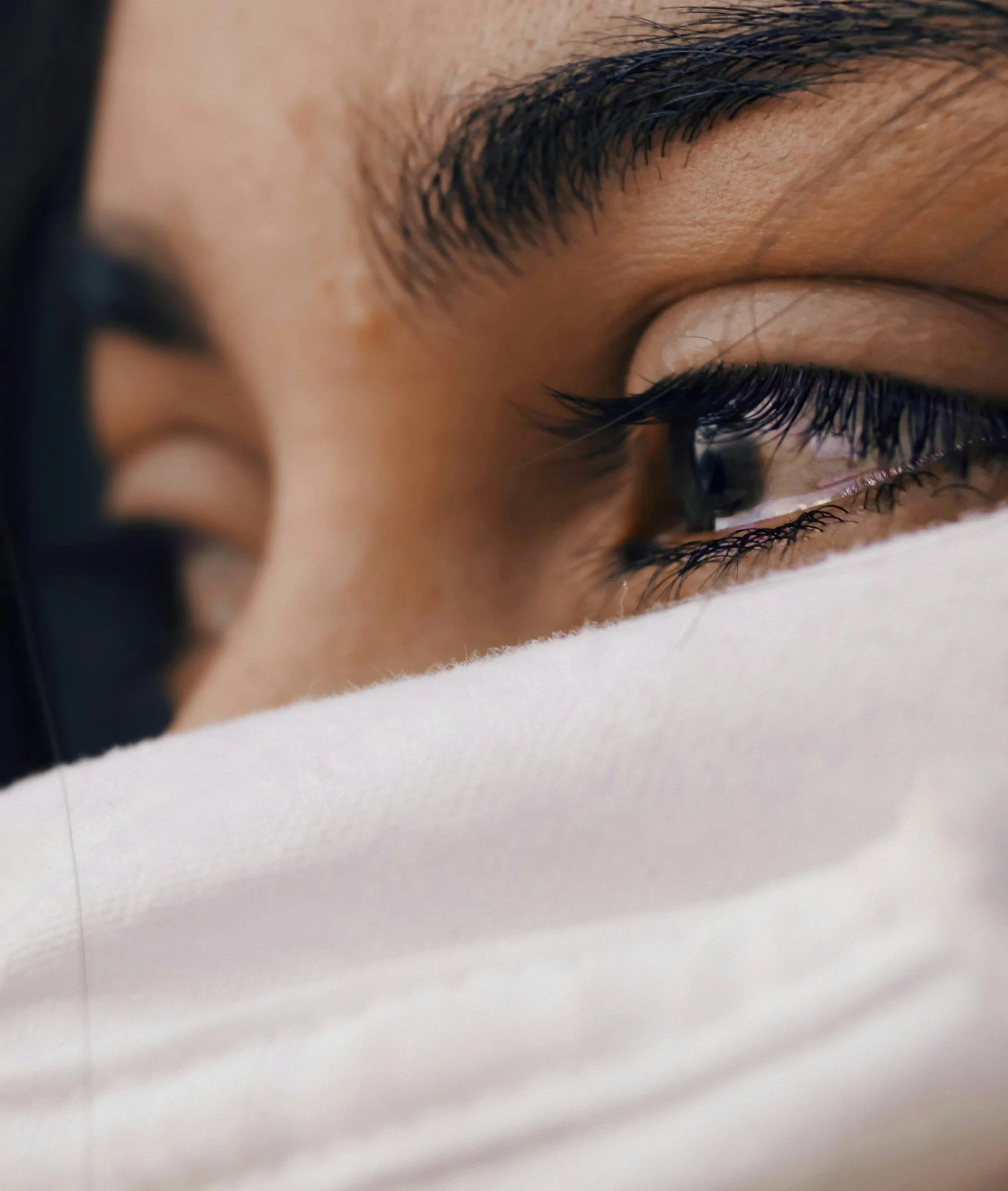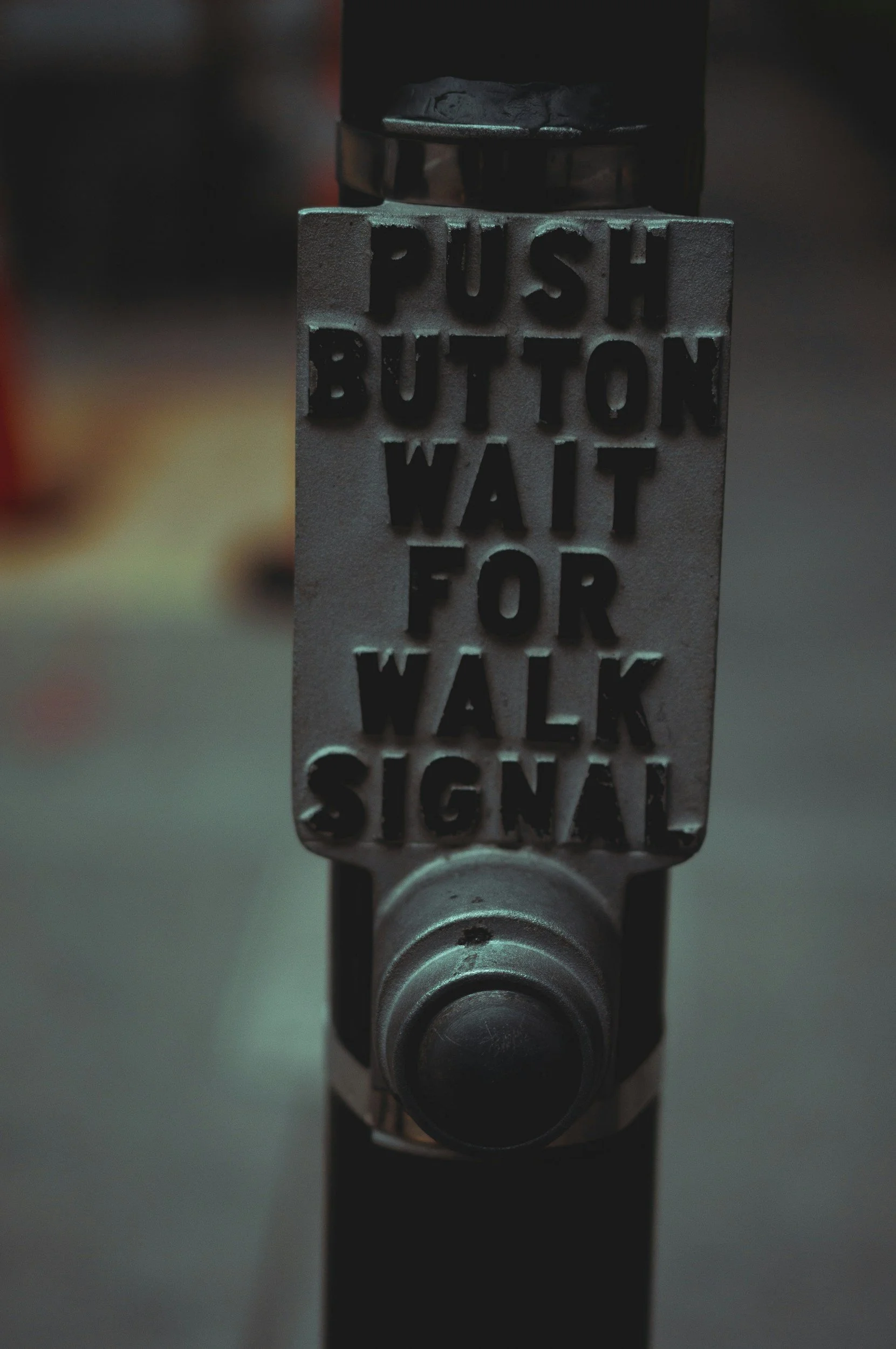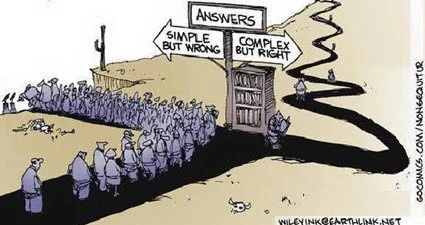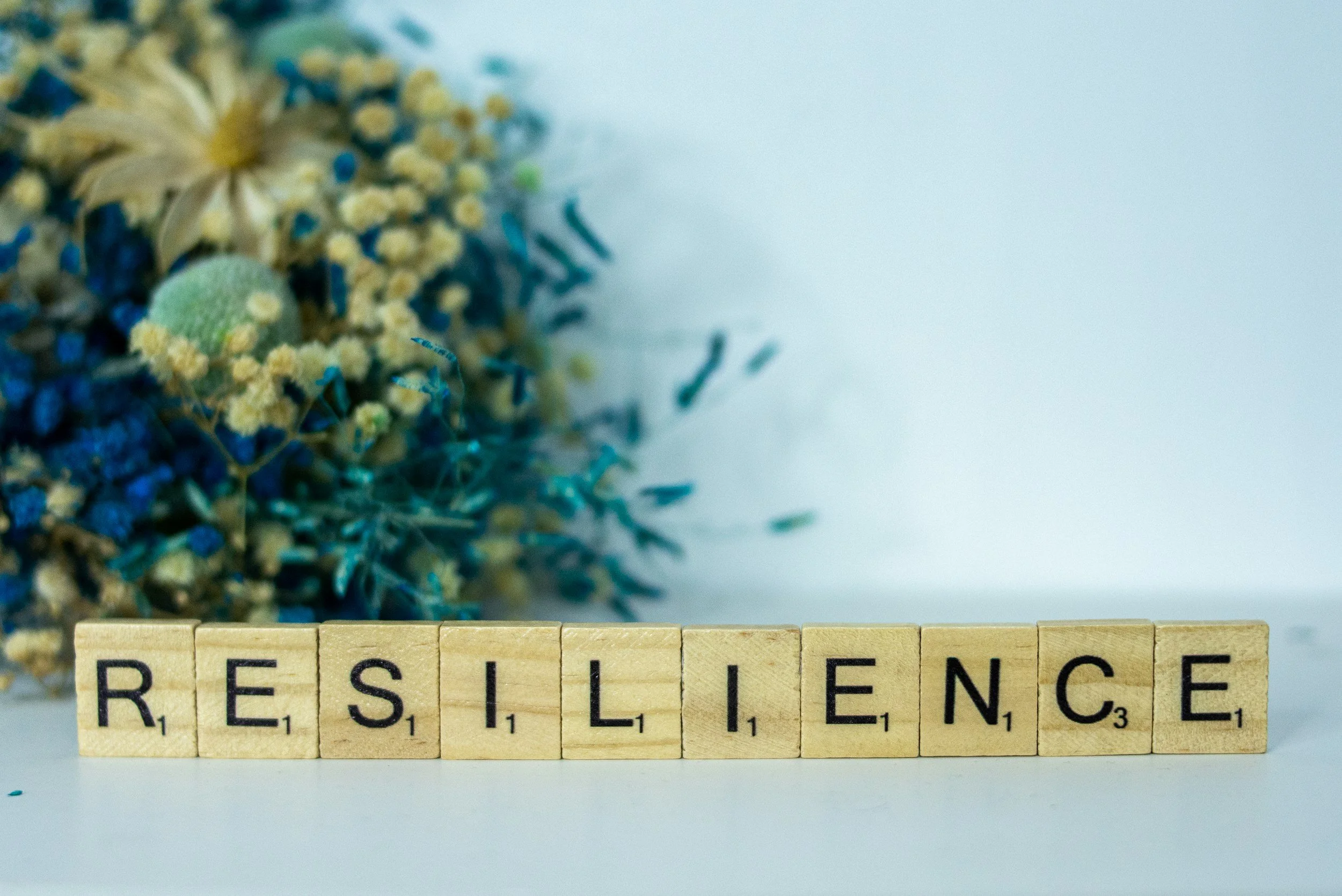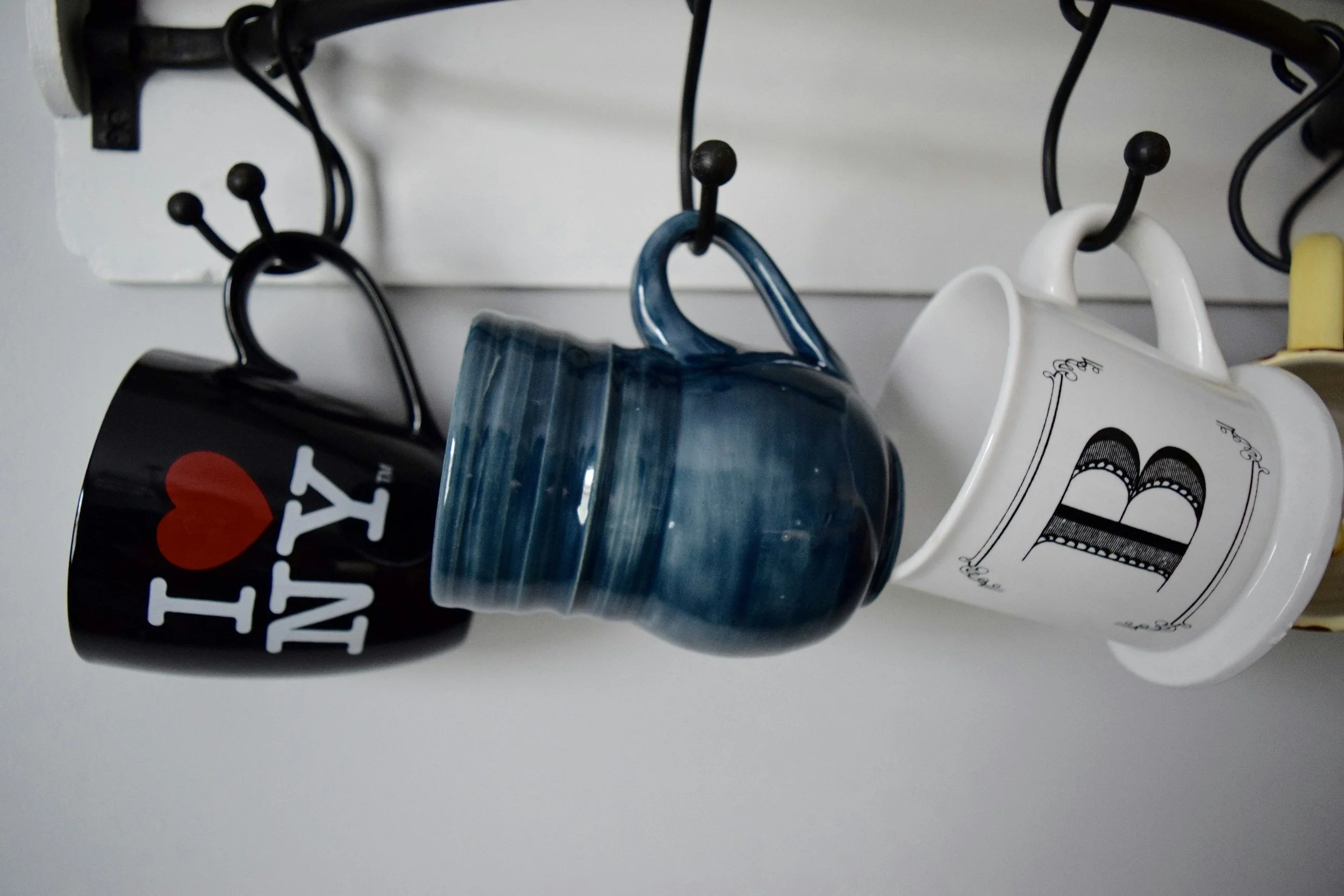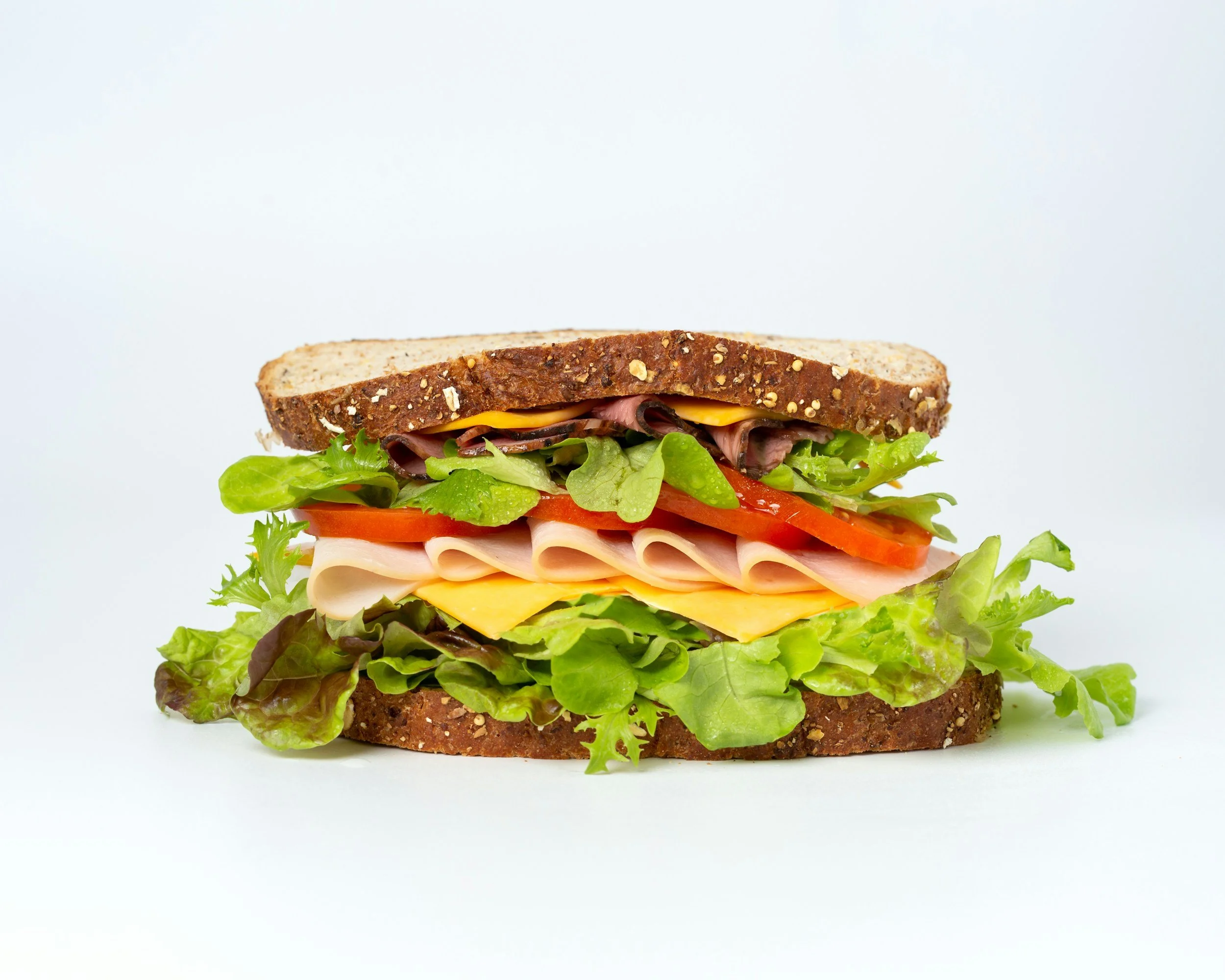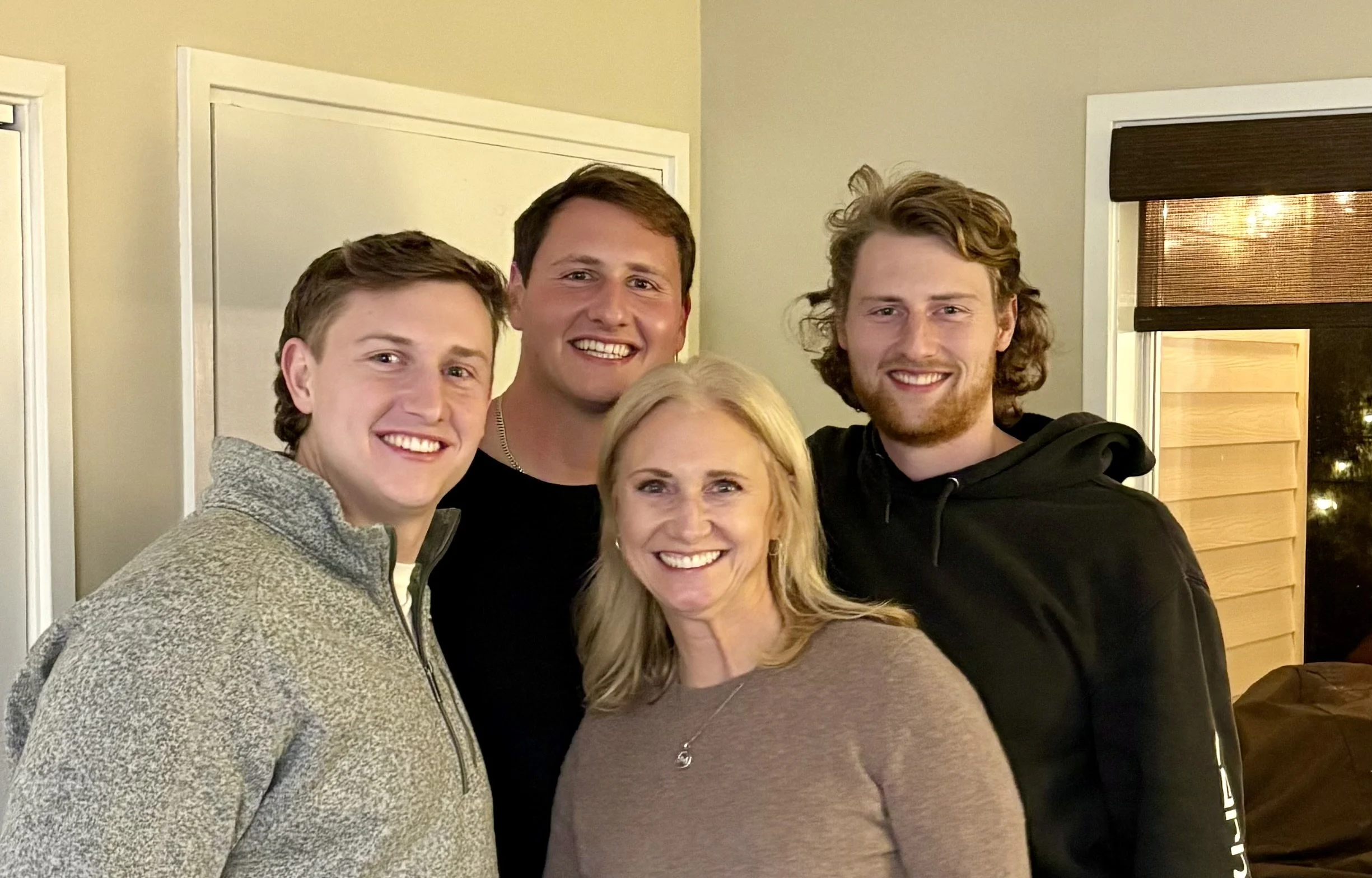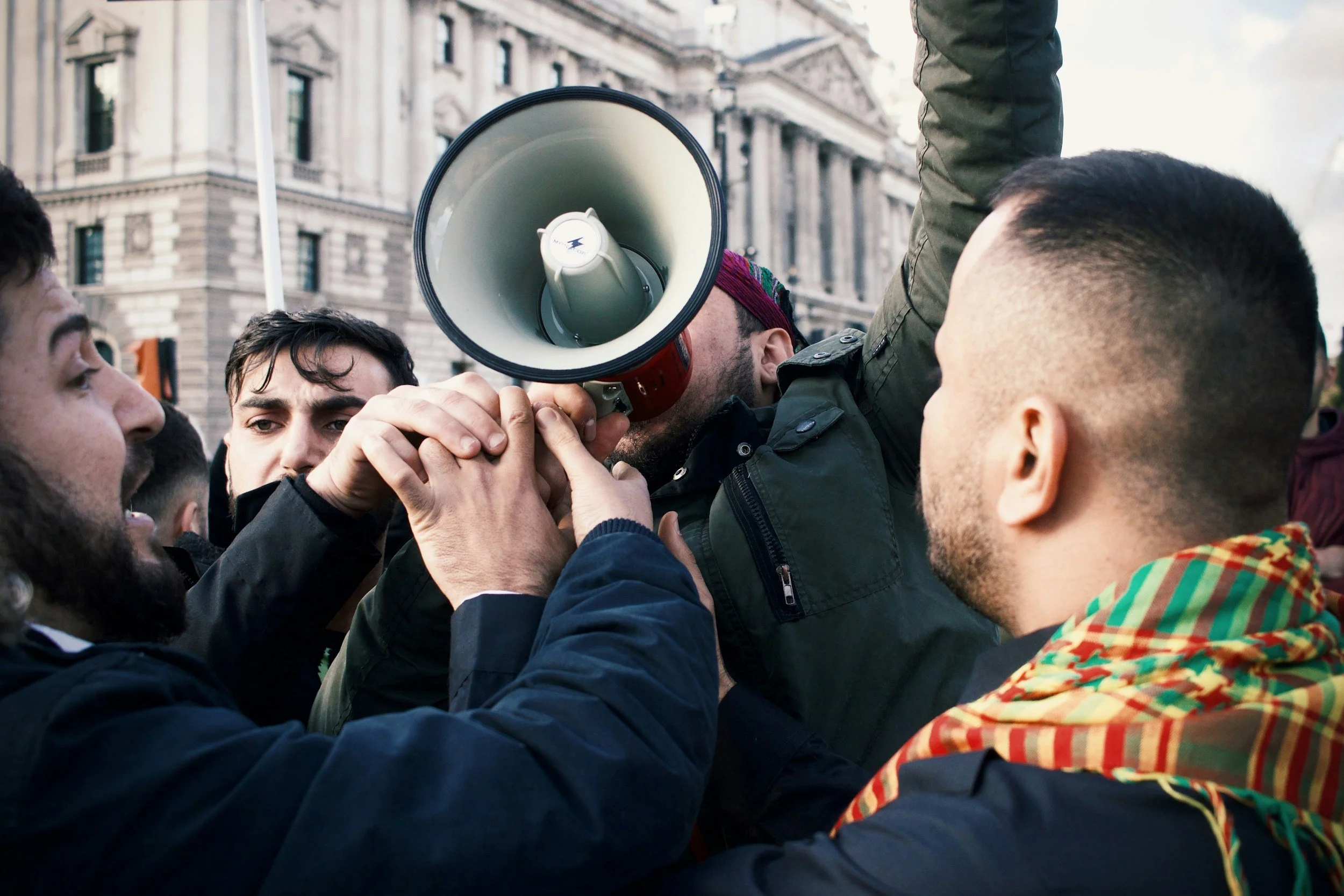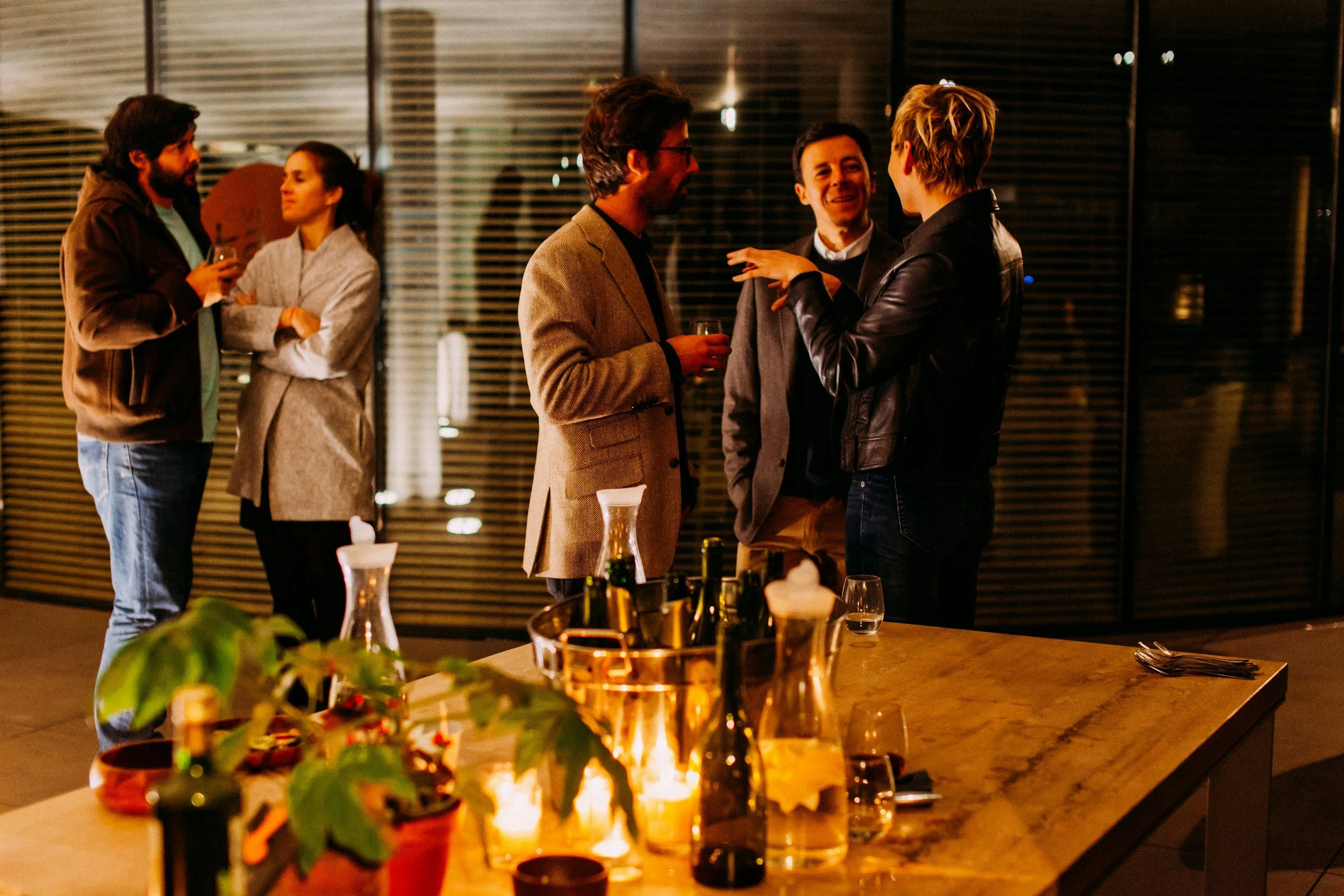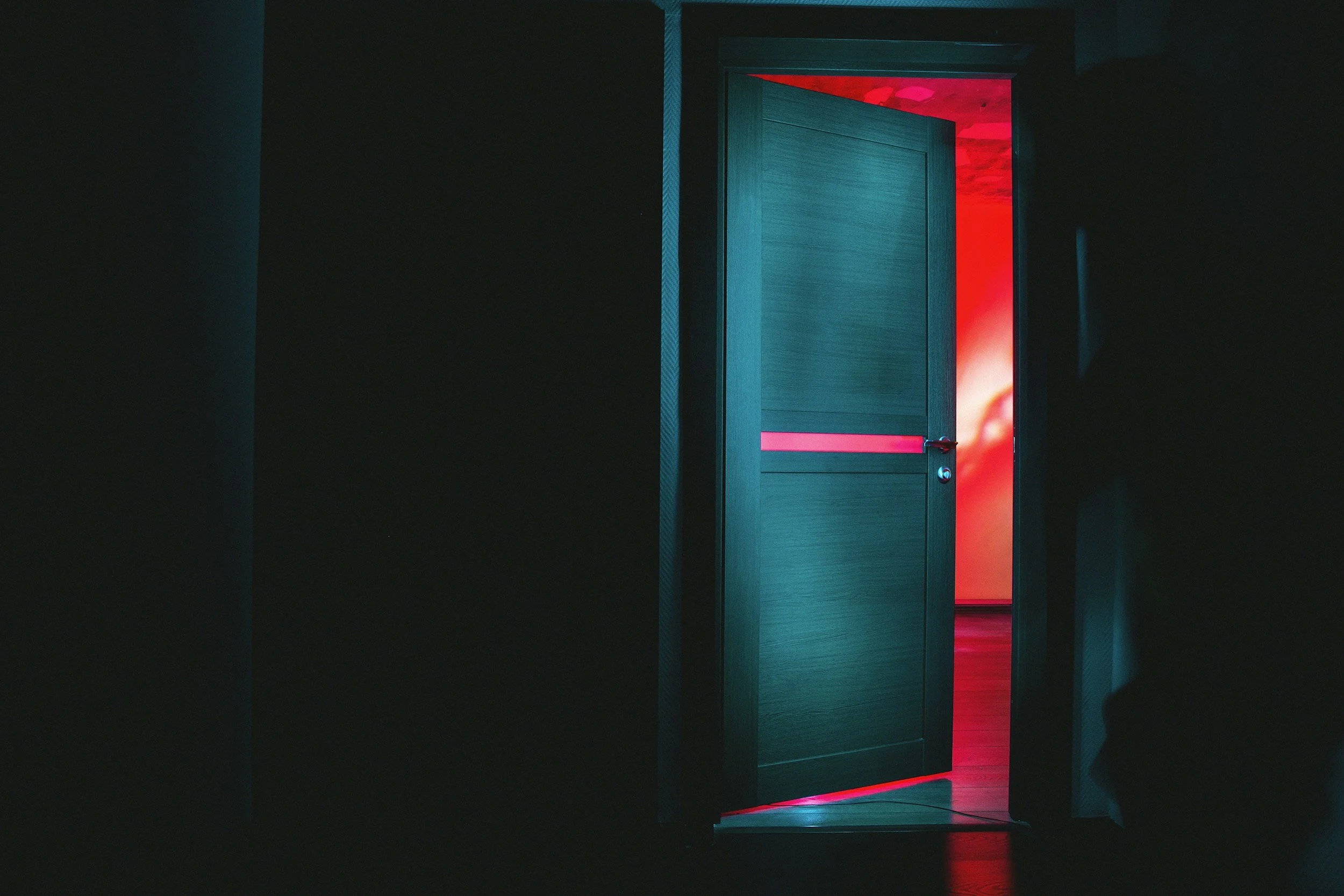TOOLS, STORIES, and MORE
Making Space for Sorrow
"The expectation that we can be immersed in suffering and loss daily and not be touched by it is as unrealistic as expecting to be able to walk through water without getting wet. This sort of denial is no small matter. The way we deal with loss shapes our capacity to be present to life more than anything else. The way we protect ourselves from loss may be the way in which we distance ourselves from life and help. We burn out not because we don’t care but because we don’t grieve. We burn out because we’ve allowed our hearts to become so filled with loss that we have no room left to care."
The Power of a Reset
Have you ever felt like your thoughts, beliefs, or actions were headed in an unhelpful direction? As though you were caught in a loop, where everything you did or thought seemed to take you further away from where you wanted to be? I’ve been there. Years ago, during a cruise for a friend’s 50th birthday celebration, I found myself in the midst of a seismic personal reset. My life had taken a sharp turn as I left a toxic marriage and organization at the same time, and I was trying to rebuild my life, my beliefs, and even my sense of self.
I was learning to rewire my thoughts, listen to my gut, and embrace my emotions in a way I never had before. It was a time of great emotional turmoil, but also of great discovery. I had spent years living in a system of certainty, one that told me how to think, feel, and act, and now, stepping outside of that system, everything felt unfamiliar. The world outside seemed unsettling; fear had wrapped me up in a dark cloud.
Critical Thinking
Recently, I attended a lecture that left me unsettled. The concepts were familiar, but something felt off. The speaker had an air of authority, confidently presenting his views—but he cited only one source. He spoke in absolutes, painting the world in black and white. And in doing so, he subtly (and not-so-subtly) positioned himself as the one with the “right” answers.
At first, I found myself slipping into his binary way of thinking: us vs. them, right vs. wrong, good vs. bad. But then, I remembered Adam Grant’s advice on becoming a better critical thinker:
1️⃣ Be 10% more skeptical of people you agree with—and 10% more charitable to people you disagree with.
2️⃣ Look for flaws in ideas you like—and strengths in arguments you dislike.
3️⃣ Learn from sources that engage with competing ideas.
So, I listened again—with a different ear.
Kihelakayo: Keep Going, Even in the Storm
A young man once asked his Lakota grandfather what the answer was to life’s difficulties.
The old man replied with a single word:
“Kihelakayo.”
“Keep going.”
This simple phrase carries profound wisdom—because life is both joy and pain, light and shadow. The call to Kihelakayoisn’t about denial or toxic grit. It’s about choosing to face discomfort head-on, with awareness, with intention, and with support.
Jay Kay: Just Kidding or Just What I Needed?
I was walking along the marina one afternoon, my mind in overdrive. It had been one of those days—the kind where your brain feels like a browser with 37 tabs open, 4 frozen, and one playing music you can’t find. Deadlines loomed, emotions simmered just beneath the surface, and my thoughts were tangled like fishing line.
And then I saw it.
A small boat, gently rocking in the water.
Painted in bold letters on the side: Jay Kay.
I stopped.
At first glance, it seemed like an ordinary name—maybe someone’s initials. But then I said it out loud: “Jay Kay.” And instantly, my brain translated: JK.
Just kidding.
Was this boat a floating dad joke? A clever wink to passersby? A message from the universe?
Women and the Truth About Anger
For many women, anger isn’t absent—it’s just hidden.
It simmers beneath smiles, polite responses, and phrases like “I’m fine.” It hides behind stomachaches, sleepless nights, and over-apologizing. For generations, women have been taught—explicitly and implicitly—that expressing anger is unseemly, unladylike, and even ungodly.
When Shame Speaks Loudest: Learning to Listen Differently
Guilt can motivate us to make things right. Shame leaves us paralyzed, disconnected, and believing we are unworthy of love or belonging.
This difference became vividly real to me the morning my 16-year-old daughter proudly showed me her shiny new driver’s license—and later that same week, backed into our neighbor’s car.
First came guilt: “Oh no! I can’t believe I did this. I’m so sorry. I’ll pay for the damage.”
Then shame crept in: “I’m so stupid. What’s wrong with me? I’m a terrible person.”
Her body shrank. Her face flushed. Her eyes filled. I saw her move from a sense of I made a mistake to I am a mistake—and I knew we were no longer talking about a dented bumper.
So I reminded her: “Accidents happen. This is why Arnold Schwarzenegger sells insurance.” But more importantly, I reminded her of who she is—not what she did.
Because shame is not a necessary part of the human experience. Guilt? Sure. Responsibility? Absolutely. But shame? Shame is a lie that corrodes our sense of self.
Resilience: The Power to Rise Again
Pain and suffering are a part of life. This is not a pessimistic statement—it’s a truth that allows for profound freedom when accepted. Because once we stop resisting the reality that hardship comes for us all, we can begin to explore what it means to live through it, learn from it, and even grow because of it.
Resilience is not about avoiding pain; it’s about what we do with it.
Resilience is the ability to face adversity, overcome obstacles, and adapt in the face of significant stress or trauma. It’s the quiet, powerful force that enables some people to bounce back from heartbreak, loss, illness, or betrayal—not by forgetting or minimizing the experience, but by transforming it into something meaningful.
In her book Energy Rising, Dr. Julia DiGangi writes:
“The truth about pain is you can never eradicate it; you can only transform it. There is no energy on the planet that can be destroyed. Because your negative emotions are, quite literally, a neurobiological energy, they’re governed by the laws of physics; while energy can’t be destroyed, it can be transformed.”
Resilience, then, is not about being invulnerable—it’s about transformation. Turning wounds into wisdom. Turning mess into meaning.
Sorting Through the Stuff
Thinning out my dad’s things is one of the most tender, overwhelming tasks I’ve faced in recent memory. It’s not just a matter of “stuff”—it’s a timeline, a museum, a story of a life. The Christmas décor in boxes that smell like dust and cinnamon. The four full sets of china, used countless times while hosting family and friends. The hundreds of ball caps from every gas station, ballpark, and tractor supply store from the Pacific Ocean to the Atlantic. Nails and screws sorted with care, fifty screwdrivers—some rusted, others brand new. Mugs from Mt. Rushmore, one shaped like a recycle bin, one that says “World’s Greatest Dad.” Souvenirs from every road trip: tea towels, candles, keychains and even a few stuffed animals. High school yearbooks and decades of sentiment packed into boxes, bags, and shelves.
It’s a sacred and exhausting ritual—deciding what is junk, what should be donated, and what is worth keeping. Each object must be touched. Considered. Felt. Does this bring me joy? Or only sentimentality? Is it honoring his memory, or weighing me down?
The process is more emotional than I expected. Because really, it’s not just about his things. It’s about change. Grief. Identity. It’s about honoring what was while making space for what is.
When You’re the Center of the Sandwich
Welcome to what’s often called The Sandwich Generation—a season of life where you find yourself in the middle of two worlds, caring for aging parents while still actively raising children. You’re fielding calls from doctors and teachers, coordinating family dinners and therapy appointments, and trying—somehow—to still have a sense of self. It’s a unique pressure point where love, obligation, and exhaustion collide.
May is Mental Health Awareness Month, and there's no better time to pause and reflect. Not just on your to-do list, but on your emotional bandwidth, your needs, and your support system. Because the truth is, this middle space isn’t just about logistics. It’s deeply emotional, often confusing, and occasionally beautiful.
We often talk about the “sandwich” in terms of being pulled between parents and kids, but that pull has real consequences for how we show up in each relationship. Your children may be growing up in a home where love and care are abundant—but so is stress. They may notice the tension in your shoulders when you get off the phone with your dad, or the way your calendar is always full. They’re watching, learning, and absorbing, even if they don’t always have the words to express it.
Your children have their own needs for attention, reassurance, and emotional attunement. They need structure and flexibility, safety and play, honesty and presence. And when you’re dividing your emotional energy between generations, something often feels like it’s falling short.
So how do you do it all?
Men’s Mental Health Awareness Month: Bridging the Empathy Gap
Every June, we recognize Men’s Mental Health Awareness Month—but awareness isn’t enough. We need understanding. Empathy. And action.
I want to begin by saying this: I love men.
I have a partner who holds space with strength and tenderness.
A father whose integrity shaped mine.
Three sons who remind me daily of the courage it takes to grow up with heart.
And boatloads of men in my life—kind, funny, talented—who believe in justice, vulnerability, and doing the work.
These men matter to me deeply. And yet, the truth is—far too many are suffering silently.
Men are facing a mental health crisis.
Men die by suicide at rates 3-4 times higher than women.
They are less likely to seek therapy or talk about emotional struggles.
Substance use, isolation, and untreated depression are skyrocketing.
Black, Indigenous, LGBTQ+, and veteran men face compounding risks due to systemic inequities and stigma.
These aren’t just numbers—they’re lives. Brothers, fathers, sons, friends. They’re the ones cracking jokes at dinner and showing up for the people they love… until one day, they can’t anymore.
Understanding the Enneagram: Stress, Growth & Self-Kindness
Conflict is inevitable—not because we're broken, but because we're human. Each of us sees the world through a unique lens, shaped by our Enneagram type. When we’re rested, grounded, and cared for, we can navigate life with awareness and grace. But when our bandwidth shrinks—due to stress, lack of sleep, emotional overload, or disconnection—we move into automatic patterns that often hurt us and the people around us.
Ever find yourself snapping at your partner, withdrawing from your friends, or spiraling in your head? That’s not just bad luck. That’s your nervous system trying to cope with more than it has capacity for.
Understanding how your Enneagram type responds to discomfort and stress is one powerful step in reclaiming your agency—and practicing growth, not just reaction.
So let’s ask the right questions:
What do I need to know about myself when I’m under pressure?
What do I need to practice to stay grounded, kind, and whole?
The Beautiful Tension of Belonging and Being Different
The Dinner Party That Could Have Imploded…
A few months ago, I was invited to a dinner party with a group of people I didn’t know well. The food smelled incredible. The candles were lit. The vibe was cozy—until it wasn’t.
The conversation turned quickly:
Politics
Religion
The ethics of meat vs. plant-based eating
You could feel the temperature in the room shift. Defensiveness crept in. I started to imagine forks being thrown across the table and someone storming out, wine glass in hand. It had all the makings of a disaster. And then something miraculous happened.
Lost in the Laundry
In the basement of my 1935 colonial home—Bostonians affectionately call it a “cellar,” you’d find the washer and dryer churning faithfully, day after day. The spiral staircase from the third floor led down to it, and every morning before sunrise, I found myself gripping an overflowing laundry basket, eyes barely open, making that careful descent.
The boys’ bedrooms were on the third floor, the girls on the second. Every hallway had a laundry basket spilling over with the day’s offerings—t-shirts, sports gear, sweat-soaked uniforms, and socks.
Oh, the socks!
The scent of adolescent sweat, hormones, and a thousand practices hit me with such ferocity some mornings I literally gagged. It became a ritual: wake up, sort laundry, carry it down, start a load, flip one to the dryer, and try to get ahead before waking everyone for school.
I was moving, yes. But I didn’t feel like I was going anywhere.
Embracing the Unknown
Have you ever been driving with the radio on and heard one of those ads:
“Call now and speak to a psychic who can tell you your future. Finally, get the certainty you deserve!”
I used to lean into those words. I wanted certainty with every fiber of my being. About my career. My relationships. My life’s path. About whether I’d be safe, loved, successful.
Because here’s the truth:
Future uncertainty is the not-knowing. The blank space ahead. It’s the inability to guarantee outcomes, no matter how hard we plan, predict, or pray.
And that’s terrifying for many of us—especially women who’ve been taught that if we just work hard enough, do the right things, or follow the right formulas, life should make sense.
The Enneagram: A Powerful Tool for Self-Ownership and Growth
Let’s start with a little self-honesty. When we’re on autopilot, under stress, or refusing to grow, here’s what “bad behavior” might look like for each type:
Type 1 – The Reformer: “I’m just being honest” (but really, they’re criticizing or controlling)
Type 2 – The Helper: “I’m just trying to help!” (but really, they’re overstepping boundaries)
Type 3 – The Achiever: “I’m just driven!” (but really, they’re steamrolling or image-managing)
Type 4 – The Individualist: “I’m just sensitive!” (but really, they’re withdrawing or brooding)
Type 5 – The Investigator: “I’m just independent!” (but really, they’re isolating or withholding)
Type 6 – The Loyalist: “I’m just being cautious!” (but really, they’re suspicious or reactive)
Type 7 – The Enthusiast: “I’m just having fun!” (but really, they’re avoiding discomfort or commitment)
Type 8 – The Challenger: “I’m just direct!” (but really, they’re dominating or bulldozing)
Type 9 – The Peacemaker: “I’m just easygoing!” (but really, they’re disengaging or avoiding conflict)
When we excuse these patterns as “just who I am,” we miss the point of being human: we’re always invited to grow.
The Art of Apologizing: How to Own, Reflect, and Grow
Apologizing is one of the most powerful—and challenging—skills we can practice. It asks us to pause, reflect, and take ownership of how our words or actions affected someone else. It asks us to face discomfort, to step beyond black-and-white thinking, and to lean into growth.
But let’s be honest:
👉 Sometimes, we struggle to apologize at all.
👉 Sometimes, we over-apologize, bending when we shouldn’t.
👉 Sometimes, we deflect or make excuses, avoiding true ownership.
Why is it so hard? Because apologizing requires vulnerability. It requires us to acknowledge:
I may have been wrong.
I may have hurt someone.
I didn’t have the full picture.
And yet—when done well—apologizing helps us build trust, deepen relationships, and become better versions of ourselves.
OWNERSHIP: THE PRIVILEGE, THE RESPONSIBILITY, THE GIFT
Do you remember getting that birthday present?
The one you had your eye on for so long. You made hints to your parents, left sticky notes, maybe even cut the picture out from a catalog and taped it where they couldn’t miss it. You wished. Dreamed. Desired. You concocted stories in your mind about what life would be like when that item was finally yours. When it was no longer just something you longed for—but something you owned.
And then it happened. It was in your hands.
You would own it.
That moment, simple as it seems, speaks to something much deeper about human nature: our longing for ownership—for agency, for responsibility, for the right to say, this is mine.
But ownership, as we grow older, becomes more complex. It’s more than just holding the object of your desire. It can feel like a privilege, a responsibility, a right… and sometimes, a burden.
Holding the Pen with Care
Writing your life story is brave.
Not because it’s polished or perfect—but because it’s honest, and honesty can be heavy.
As a trauma-informed memoir coach, I don’t just help people write. I come alongside them as they unfold their narrative—the tangled threads of memory, meaning, and identity—and try to make sense of it all on the page.
Writing a memoir can be deeply cathartic, but it’s not easy. Especially when your story holds trauma. It’s one thing to revisit a moment in your mind; it’s another to reenter it in language—to give it shape, weight, tone, and voice. That’s where the real work begins.
Empty Nest, Full Heart: Learning to Let Go and Stay Connected
When my five children were growing up, I often felt like the soccer ball in a preschool match—surrounded at all times, everyone running after me, bumping into me, needing me. They were close. Physically, emotionally, spiritually. I knew what snacks they liked, what shows they were watching, who they were mad at, and what made their eyes light up. I was woven into every moment, every rhythm, every high and low.
And now, they are growing into their own lives—becoming adults with opinions, interests, beliefs, and boundaries that are beautifully different from mine. They’re finding their own way, as they should. And I’m learning to let them.
